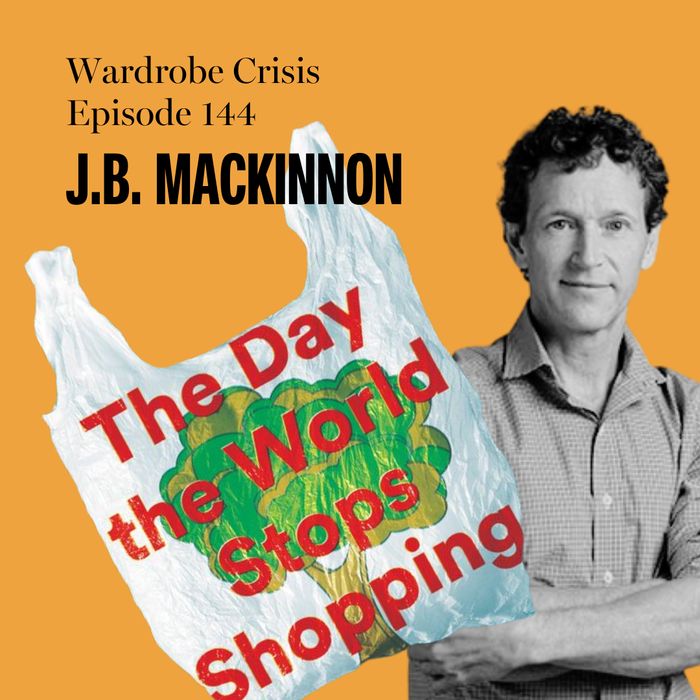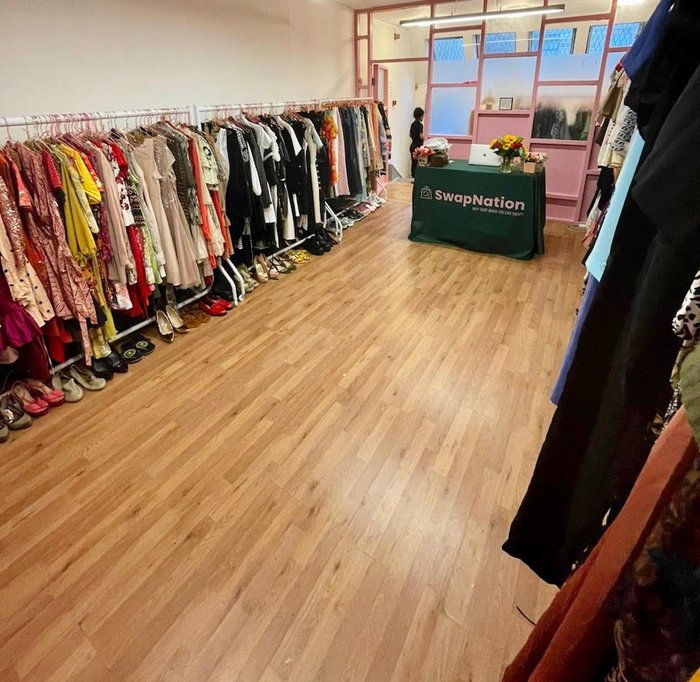The Titian Thread
The month in fashion, condensed.
Hi Hey there!,
I'm probably not alone in saying that my eco-anxiety has been through the roof this month. July started with a hellish ring of fire in the Gulf of Mexico and is ending with parts of Germany, Belgium, China (and even here in London to a lesser extent) experiencing devastating floods. All this is off the back of record-breaking heatwaves around the world in June. It's really terrifying – the pace and ferocity of these weather events, and even if you don't read the news or doom-scroll Twitter, it's impossible to ignore.
There's a sense of hopelessness that comes with eco-anxiety. Global leaders are doing the bare minimum at best, in fact, Boris Johnston's government is actively breaking its own climate goals (as well as the targets set by the Paris Agreement) with plans to open the Cambo oil field off the Shetland Islands next year. All the keep cups and metal straws in the world can't make up for the 150 million barrels of oil that Cambo is set to extract.
So, if you're feeling like hiding under your bed, I don't blame you. But after crawl out, here are some actions that have helped me cope with that "WE'RE ALL GONNA DIEEEE" feeling.
Get involved. Activism doesn't just look like cardboard protest signs with pithy quotes painted on them. Climate activist Tolmeia Gregory recently posted a great list of roles and skills that organisations need. Make a bangin' cuppa or are you a wizz at InDesign? There are so many BTS roles that are just as important and can fit around your life.
Talk to someone. We can all just shake our heads and mutter "global warming" to each other, but I don't think I'd properly told anyone about the emotional toll that the climate crisis has taken on me until recently. Identifying and acknowledging the legitimacy of climate anxiety is a good place to start if you want to deal with it.
Search for the good news too. If your social feeds are constantly showing you doom and gloom, follow activists, organisations and thought-leaders who can inject balance and a sense of hope into your timelines. Remember that there are incredible people fighting to make the world better. Check out my recommendation list here.
Don't fall into the trap of eco-guilt. So you buy single-use plastic or half your wardrobe is H&M, it's okay. Making small changes to the way you live is necessary and makes us feel like helping – but don't forget that corporations are the biggest culprits in the climate crisis. Channel that energy into action – troll BP and BooHoo on Twitter or email your MP about recycling in your area – and use your voice to demand more from the companies you support.
Side note: The newsletter is evolving! Scroll to the end for my interview with Montana Marshall, the founder of clothes swapping company SwapNation.
Until next time, hit the reply button to share your thoughts or feedback!
Meg X
Stories I Wrote
Stories I didn’t write
How to Create Sustainable Shopping Habits and Keep Them in Place by Alice Porter for Stylist Magazine. Fashion psychologist Shakaila Forbes-Bell shares some practical advice for curbing impulse shopping habits and rethinking how we buy and engage with our clothes.
Gen Z Doesn’t Know a World Without Fast Fashion by Terry Nguyen for Vox. Those born after the year 2000 have grown up with ultra-cheap fashion as the norm, but they're also coming of age in a climate crisis. This piece is a fascinating look at Gen Z's relationship to fashion and sustainability.
Renting Fashion Can be Green, Argue Clothes Renters by Ellie Violet Bramley for the Guardian. You may have seen the report this month that claimed renting clothing is worse than throwing it away. It received plenty of backlash for lacking nuance and failing to acknowledge that there's no single solution when it comes to circularity in fashion. This Guardian piece counter-argues the benefits of renting.
Garment Worker Ranks as 7th Deadliest Job During Pandemic by David Shuck for Heddels. You may think this study was looking at Bangladesh or India, where human rights abuses against garment workers are well documented. But it's actually just looking at California, where LA's garment worker deaths were 22% higher last year than in pre-pandemic times.
How the West’s Thirst for Fast Fashion is Destroying Lives by
Dil Afrose Jahan, Tansy Hoskins, Juan Mayorga, Nidia Bautista for DhakaTribune. This story follows the experience of a few garment workers in Bangladesh whose lives have been shattered by the industry's low wages and lack of job security duing the pandemic.
42 Sustainable Brands For Every Budget and Taste by Solene Rauturier for Good On You. It's time to bust the myth that sustainable fashion is unaffordable. Here's 42 brands for every budget.
Why Is There Still So Much Hidden Plastic In Our Clothes? by Emily Chan for Vogue. Synthetic fabrics make up 60% of fibres globally, and that number is only going up – by 2030 it's set to hit 75%. How did we get here, and what's the solution? Chan investigates.
The To-Do List
If you take on thing away from the newsletter this month, make it this fascinating Wardrobe Crisis episode, where Clare Press interviews Canadian journalist J.B MacKinnon. They discuss consumption, why we shop, why we need to slow down, and alternative lifestyles to strive for that don't revolve around a buy! buy! buy! mentality.
The Interview
with SwapNation founder, Montana Marshall
What is SwapNation, and how did it come about?
SwapNation is a community of swappers choosing to extend the life of garments and save them from landfill by swapping items they no longer have a place in their wardrobe for, with pieces they will love to wear.
The idea for SwapNation was born from my own past shopaholic tendencies - I would easily spend £300 per month on new clothing until I considered that most of my wardrobe was unworn or worn a handful of times. After speaking with friends, I realised this was a common problem for us all and, most likely, a lot of women who love fashion.
So, I decided to explore the idea of creating an online platform for swapping these unwanted items we don't want and replacing them with items we do want from our like-minded community. After a great uptake online and a stint of successful pop-ups in London, we decided to lay down roots in the heart of Shoreditch and have opened London's first permanent swap studio. We hope to continue to show that swapping is an affordable and accessible way to be sustainable in your fashion choices!
Why is swapping clothes better than shopping for new ones?
Swapping is a mutually beneficial way to shop. It benefits the swapper, who gets to offload their unwanted items in exchange for new-to-them, stylish pieces. It benefits the planet to keep clothes in circulation for longer rather than gathering dust at the back of wardrobes or, worse, landfill. Swapping is also comparably cheaper than the average fashion retailer, so it benefits your bank account too!
What's your advice for getting into clothes swapping?
Just do it! Swap clothes with your family or friends, branch out and go to a local clothes swap in your area or for a luxury experience come to us for sipping, swapping and sustainable convos!
What's the best swap that you've made?
I know it's probably cliché, but every single swap is my favourite because it means one less piece of clothing in landfill that I'll love and give more life to, which I can then swap into the shop again for someone else to love! My absolute favourite though is anything yellow, or trainers!



